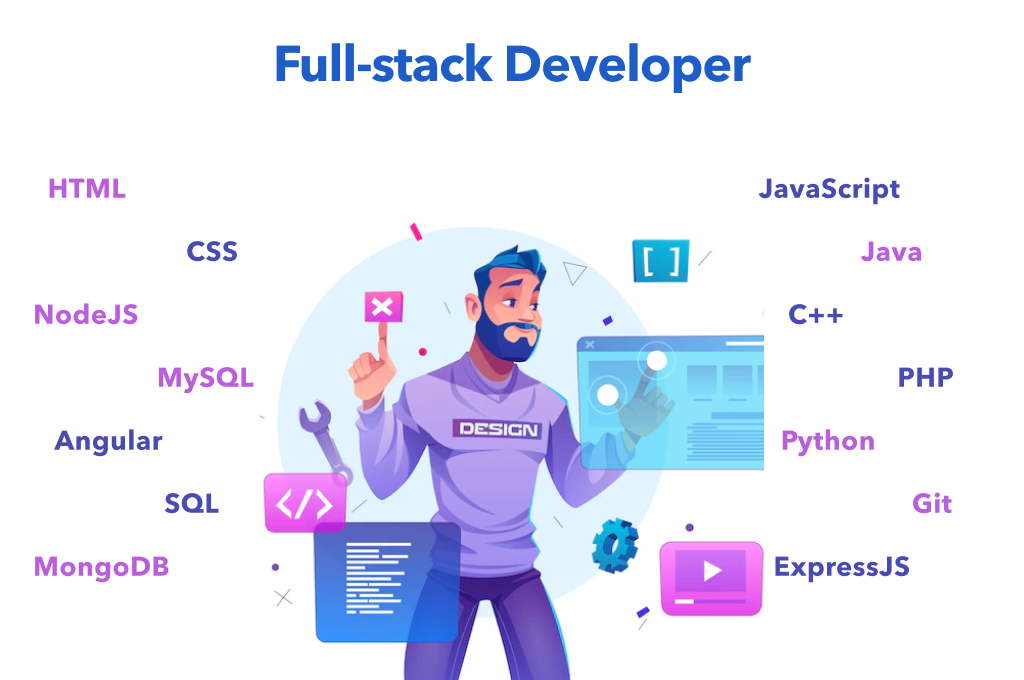The year 2020 brought in an unprecedented time, leading to a sudden forced shift in the way of working.
As technology improves and businesses’ outreach widens, what was once an opportunity for few to get relaxed working at home has become a reality for millions of employees around the globe.
Recruiting top talent and creating a diverse workforce is the need of the hour for every business kind today.
The software development industry has reached another level of striving for digital transformation. Almost all companies need a developer at one point or another, and this is the situation where the entire company falls into a dilemma.
CTOs often get confused when it comes to hiring employees to upgrade their company for better revenues. Is a freelancer better, or should I go with a remote developer? This is the most common question that comes to every entrepreneur's mind when it starts looking for workforce requirements.
There are pros and cons to both hiring processes, and this article will help business entrepreneurs make an informed decision about their workforce hiring.
Who Is A Freelancer?
Freelance jobs are part-time jobs that offer employees a flexible schedule. Freelancers are self-employed business owners who work independently on their terms and conditions. They usually perform tasks for multiple clients and charge based on an hourly basis, project fees, or ongoing contract terms. The most common freelance workers are graphic designers, social media managers, etc. As freelancers, they do not enjoy the permanent benefits employees get from the companies they work for.
Place of work: Remote
Employment Status: Self-employed
Tax Responsibility: Pays self-employment tax
Benefit receiving eligibility: Not eligible
Project duration: Short time
Advantages Of Hiring Freelancers
A freelancer will provide you with benefits that you can’t enjoy being a permanent employee. Here are some of the benefits that freelancers can enjoy while working.
1. It will reduce your overheads.
Hiring freelancers who work remotely will ultimately reduce your business overheads as you do not have to rent office premises and other maintenance staff. So, if you hire an expensive freelancer, the overall cost also decreases substantially.
2. It will help you mitigate the risks involved.
Most businesses today recruit freelancers on a project basis. As freelancing is not a permanent job, your hiring personnel can cancel the contract anytime if the freelancer fails to perform well as per expectations or project requirements. With this, the employers are at low risk as they benefit from exemptions under state laws.
3. Hiring freelancers is a simpler process.
No other hiring is as simple as hiring freelancers. Companies can easily hire freelancers as per their project requirements on various online freelance platforms. They can hire IT professionals, marketers, designers, assistants, academics, writers, accountants, and other professionals working as a freelancer within the desired budget. They simply save their money and time both when hiring freelancers. Moreover, there are no geographical restrictions; you can hire skilled freelancers globally.
4. Maintain Industry-standard quality.
The demand for freelancers has made it necessary for businesses to maintain a high-quality standard to entice clients. In contrast, freelancers strive to deliver best-in-class service to their clients to build a good reputation in the marketplace.
5. Helps Build Connections.
Typically, experienced freelancers have a vast network of meaningful connections. You would be surprised to know how much a freelancer with a vast network will be available for your work at your cost. For instance, if you are looking for a skilled content writer, they might refer you to an excellent graphic designer for your project.
6. Access to top-class talent.
You will get highly skilled specialist developers with years of industry experience in freelancing. So, if you choose wisely, you might land an excellent freelancer that adds value to your business.
Disadvantages Of Hiring Freelancers
Freelancing is not a new term for all of us. Many of us have already worked as a freelancer in our professional careers. It benefits you in terms of knowledge and expertise or increases your financial status, but it also has some disadvantages. Here are some of them. Please have a look.
1. Create challenges while establishing company culture.
Creating a well-defined and organized company culture is often challenging when hiring freelancing due to a lack of adequate supervision. While freelancers might be profitable in the long term, they are usually not invested in your company’s success and growth. After all, their main aim is to boost their revenues.
2. Unavailability and unresponsiveness of freelancers.
The working hours and time zones of freelancers may be different from yours. Unlike permanent employees who make regular visits to the office within a specific time, freelancers don’t need to do so. Instead, they work at their preferred time. This is why hiring freelancers is not a better option for time-sensitive work that requires that to be a time whenever required.
3. Lack of effective communication.
Hiring freelancers will cost you less; it would cost you more in the long term if your remote team isn't performing well. So, to maintain a smooth workflow, employers must hire a project manager to monitor all employees, whether full-time or freelance. Lack of communication between you and the freelancer will adversely impact your projects.
Who Is A Remote Developer?
Remote jobs are full-time jobs for employees away from the office at some organization. Remote jobs can be done anywhere. Companies that offer remote positions enrich their company culture and make sure everyone is working as a part of the team.
Remote employees have the freedom to choose the location they prefer to work in and can even be hired to work from anywhere around the globe. The company is responsible for providing a safe environment, tools, resources, and employee benefits, including a regular award wage or salary, insurance, and tax obligations.
By 2028, 73% of all departments will have remote workers.
Place of work: Remote
Employment Status: Works for onе company
Tax Responsibility: The company withholds taxes
Benefit receiving eligibility: Company provides benefits (health insurance, wellness programs, etc.)
Project duration: Long projects
Advantages Of Hiring Remote Developers
Remote working is a new normal now. Every business is now looking forward to adapting the new work culture to enhance workforce productivity and efficiency. Here are some of the benefits that remote developers can enjoy while working remotely.
1. It adds scalability to your business.
One of the significant benefits of hiring remote developers is to increase scalability. Also, organizations can enjoy benefits from reduced overhead costs and no minimal risk. Companies can hire skilled professionals and fill deficits in their ranks.
2. It aids in the continuous development of your business.
It is challenging for an in-house team of developers to work 24/7, but you can get this easily with remote developers. Offshore developers work in various time zones; there always be continuous development round the clock. Regular and seamless communication is essential to ensure everyone is on the same page.
3. It upgrades flexibility.
Hiring remote developers will upgrade the flexibility of your business. You can now focus more on other aspects of your business. For example, you can focus more on marketing or managing client relations while letting your employees handle the development. Remote hiring will provide you with enough time to invest in other crucial business activities.
4. Boosts the in-house team strength.
Companies add strength and value to their in-house team by hiring remote developers. By hiring specialized developers, you can simply fill these gaps. It determines the high demand for remote development teams in multiple sectors. Whereas, with experienced remote developers, you can expect them to share their skilled expertise and guide your in-house team.
5. You Can Access skilled expertise and rich experience.
The presence of skilled expertise and rich talented professionals in the market means the companies can choose the best one that aligns with their needs. A focused and agile development team is vital for a project to be successful. This way, you can boost your work productivity significantly.
6. Reduce Your Business Costs.
One of the significant benefits that companies can enjoy from hiring remote teams is the reduced overheads. With this remote hiring, businesses can save costs in the recruitment process. They don’t have to spend time building the IT infrastructure and other benefits. To scale your business, this will be your primary deciding factor.
7. Boost your work productivity.
With remote developers on board, businesses can now move forward with more projects. A CTO's cheat sheet will enable you to hire the best developers, and implies your hiring process. It will enhance your business productivity and accelerate your revenues. Hence, this will increase your profit rates and benefit your remote employees too.
Disadvantages Of Hiring Remote Developers
Remote working does not always benefit you in all ways. It also comes up with some disadvantages. Let’s check some of them.
1. Inconsistent Time Differences
Hiring remote developers from different parts of the world provides a lack of consistency in working hours among the team. This will benefit employees and permit a better work/life balance. Still, there are also some disadvantages to it.
Not having an entire development team available for urgent production issues may delay diagnosing the problem and fixing it. The different time zones and limited meeting availability will create complex issues between teams.
2. Minimal to no Knowledge exchange between teams
When working remotely, it is quite possible that you didn’t get the time to exchange knowledge with other team members. Usually, when you accept a job offer on a permanent position, you go through the onboarding process, meet colleagues, hold meetings, and then start with the work. You start attending sprint planning, and backlog refinement meetings will speed your priorities and work status. You simply do all these things when working in a permanent position, but it is quite challenging to do all these things with remote working.
3. Team communication Challenges
The major disadvantage when working remotely is building connections with your teammates. It is quite challenging to communicate with your team members in remote hiring due to language and time constraints. The hard reality is that you cannot develop a good connection with your teammate when interacting via Zoom or Slack compared to being physically met in the office.
There are still some gaps left in the communication process.
4. Time zone differences
When working remotely, your remote worker may be sitting in different locations of the world than far away from your location. Depending on the time zone differences, the urgent issues will have to wait for hours before your team begins their workday.
How Are Remote Developers Different From Freelancers?
Many people are confused about the difference between hiring remote developers and freelancers. They have specific questions and queries about whether freelancers can be considered remote developers or not. However, there is a big difference between hiring remote developers from an outside firm and hiring freelancers. Let’s check out the differences below.
-
Remote developers can be an expansion to your in-house team, depending on the project requirement. In contrast, Freelancers will not be dedicated entirely to just one project. They usually work on multiple projects at the same time.
-
Hiring remote developers from a trusted organization means you get a signed non-disclosure contract from the company itself, ensuring your job security. On the other hand, freelancers are independent workers with whom security doesn’t matter, and it ultimately puts on your shoulder.
-
Remote developers are committed to providing the utmost quality content that matches the client’s requirements. In comparison, Freelancers do not take much responsibility once they have handed over the code.
-
Remote developers work at a specified time, during which you can easily collaborate with them to discuss project requirements and progress. On the other hand, freelancers have no fixed time and work schedule.
Freelancer Or Remote Worker-Whom To Hire?
Understanding the freelancer vs. remote worker categorization is vital for every company that wants to virtualize its working processes. While freelancers are best suited for short-term projects, a remote team will take your long-term projects to the next level by boosting your productivity and efficiency and increasing the quality of work.
Both hiring processes have several pros and cons -remote developers and freelancers, and the right choice between them depends on your project requirements.
Embracing remote work as a long-term strategy makes sense for startups to stay competitive in this fast-running digital space. You will attract great talent at budget-friendly price points and have more flexibility in your workforce size and scalability through remote jobs.
In both cases, the companies should be well prepared for smoother and fast communication and come up with verifiable metrics for evaluating work.
Hopefully, this article allows you to decide about hiring between remote and freelance.



























